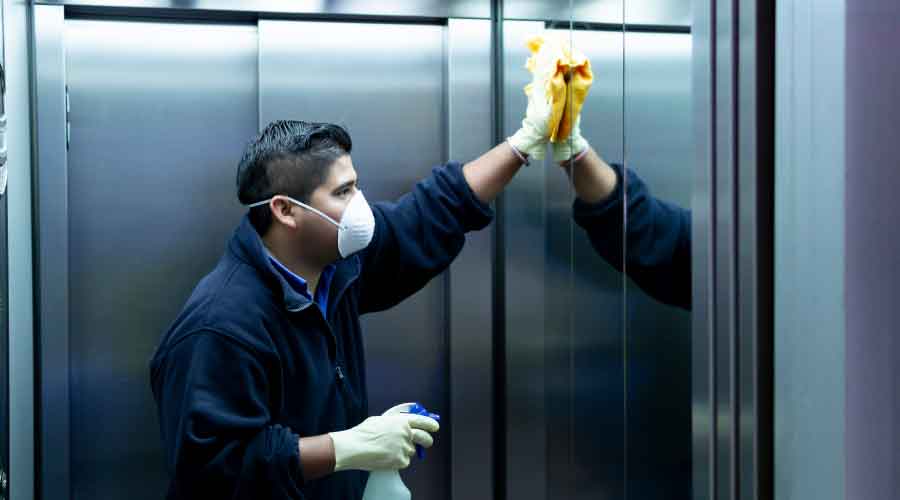
What We Learned from COVID
Help building occupants stay healthy by encouraging proper handwashing and ensuring surfaces are cleaned and disinfected. February 1, 2023
By Stephen Ashkin, Contributing Writer
The COVID-19 pandemic has been a global health crisis that has highlighted the importance of infection control and prevention. As the world continues to grapple with the ongoing impact of the pandemic, it is important for facility managers to reflect on the lessons that have been learned and consider how these lessons can inform future efforts to control and prevent the spread of infectious diseases.
One of the most significant lessons from the COVID-19 pandemic is the importance of hand hygiene in preventing the spread of illness. The frequent and thorough washing of hands with soap and water, or the use of alcohol-based hand sanitizers when soap and water are not available, has been shown to be an effective way to reduce the transmission of COVID-19 and other infectious diseases that are transmitted through hand contact. Facility managers can encourage thorough hand washing by providing high quality soap and warm water, along with faucets and paper towel dispensers that are touchless.
The pandemic has also emphasized the importance of regular and effective cleaning and disinfecting surfaces and objects in order to reduce the risk of infection. This includes regularly and effectively cleaning high-touch surfaces, as well as regularly and effectively disinfecting areas that are frequently used by large numbers of people, such as breakrooms, restrooms, conference rooms, shared office spaces, and classrooms. Proper cleaning and disinfection can help to remove visible dirt and debris, as well as kill germs and bacteria that may be present on surfaces and objects. FMs can help identify which surfaces are in fact high-touch and objectively measure cleaning performance to ensure it is done effectively.
In addition to these specific lessons, the COVID-19 pandemic has also emphasized the importance of having robust infection control and prevention policies in place. This includes the development of contingency plans for dealing with outbreaks, clear guidelines for cleaning and disinfection of surfaces and objects, as well as identifying priority surfaces and areas in the event that there are shortages of cleaning personnel. FMs should develop policies based on the best available evidence and should be regularly reviewed and updated as needed.
Another lesson learned from the COVID-19 pandemic is the importance of effective communication and collaboration in the response to infectious diseases. This includes working closely with organizational leadership, local, state, and national health agencies, as well as collaborating with other organizations and stakeholders in order to effectively coordinate efforts and share information.
Finally, facility managers should keep in mind that infection control and prevention go beyond pathogens such as that which caused COVID-19 to include reducing occupant exposure to mold spores, Legionella from improperly maintained cooling systems, Listeria from stagnant drinking water, E. coli and Salmonella from food preparation surfaces and equipment, pest droppings from rodents, soil and dust contaminated with bacteria and other compounds that can harm occupant health, and more.
Overall, the COVID-19 pandemic has served as a reminder of the importance of infection control and prevention in protecting occupant health, along with the fact that the cleaning industry has the products and know-how to keep buildings clean, healthy and productive when given the time, resources, policies and plans to get the job done right.
Stephen Ashkin is president of The Ashkin Group, LLC, a nationally renowned consulting firm helping building owners “green” the cleaning process. He will be presenting the session “Infection Control and Prevention: What We Learned from COVID” at the upcoming NFMT conference in Baltimore in March. Learn more about the event and register at www.nfmt.com/baltimore.
Next
Read next on FacilitiesNet












